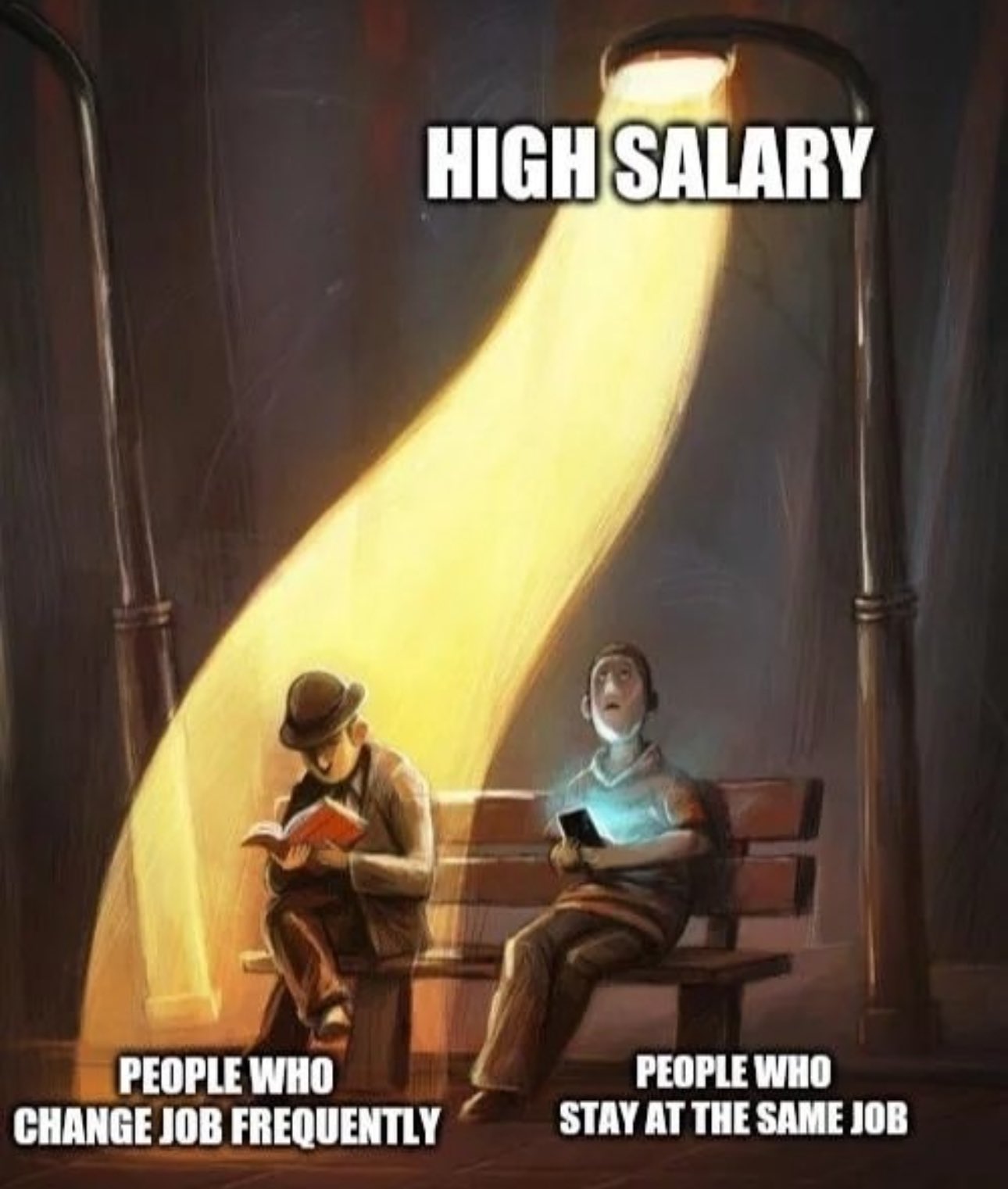this post was submitted on 27 Dec 2023
813 points (97.4% liked)
memes
10680 readers
1850 users here now
Community rules
1. Be civil
No trolling, bigotry or other insulting / annoying behaviour
2. No politics
This is non-politics community. For political memes please go to !politicalmemes@lemmy.world
3. No recent reposts
Check for reposts when posting a meme, you can only repost after 1 month
4. No bots
No bots without the express approval of the mods or the admins
5. No Spam/Ads
No advertisements or spam. This is an instance rule and the only way to live.
Sister communities
- !tenforward@lemmy.world : Star Trek memes, chat and shitposts
- !lemmyshitpost@lemmy.world : Lemmy Shitposts, anything and everything goes.
- !linuxmemes@lemmy.world : Linux themed memes
- !comicstrips@lemmy.world : for those who love comic stories.
founded 2 years ago
MODERATORS
you are viewing a single comment's thread
view the rest of the comments
view the rest of the comments

This comment makes no sense. You can change jobs any time, and the sooner you get paid more, the sooner you can switch to a position that pays even higher
You may be right - I do see my gigachad ex-coworker change companies every year. Guess I'm just more scared of having lots of short employments on my CV, or maybe I'm just locked into my way of thinking even if it doesn't make much sense.
I think the idea is that more employers are being cautious right now, and so employees lose a bit of leverage going into negotiations. They'd rather wait with what they have, some sense of stability, and enter the job market again when things are looking better for the employees.
Is this necessarily true or accurate? I don't really know, that's a bit outside of my pay grade, but I get the reasoning
The thing is, while interest rates and wages are in some ways connected, it's a far less direct connection than simply taking a look at the overall labor market, competitive pay rates for your skills, and going job hunting when yours isn't keeping up.
Regardless of interest rates, the labor market is tight right now, which means better offers from those companies willing to compete for qualified workers, end of story.
Honestly, while I'm no economist, I would think that most companies aren't borrowing in order to cover payroll, so while interest rates may affect their decisions in regards to capital investments, they only have a tangential effect on hiring and compensation offers. In fact if anything, maybe a high interest rate might dissuade a company from capital investment and steer them toward a focus on staffing.
Also capitalism has no bearing on what you're paid.
Like, you can work exclusively in government roles, NGOs, or co-ops and change jobs every 3 years and make vastly more than you were making when you started.